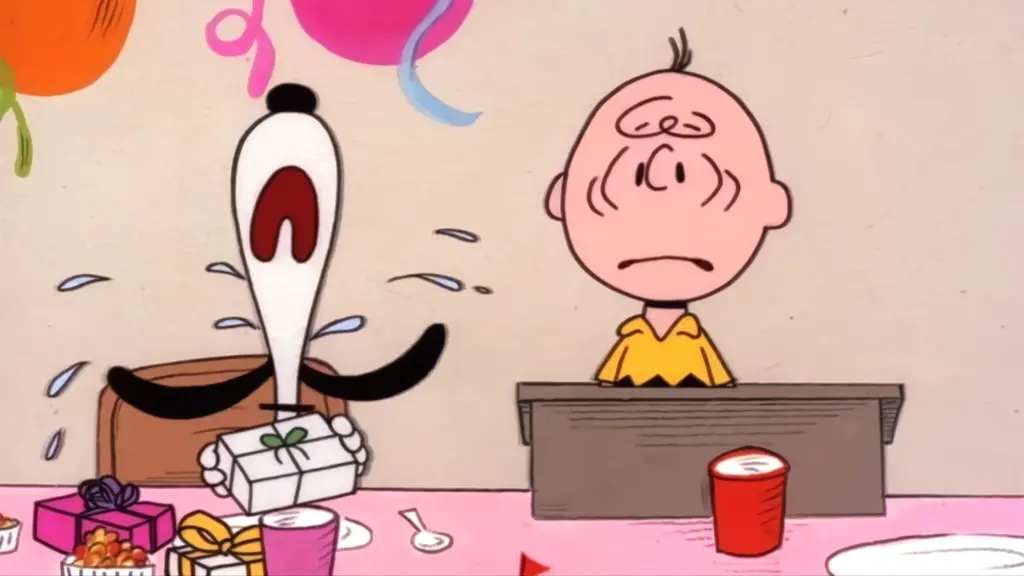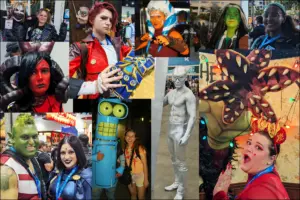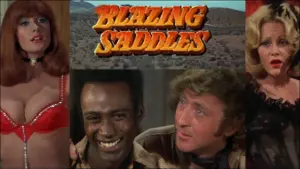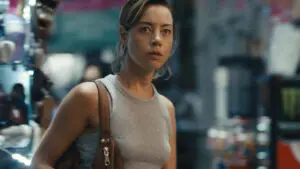Snoopy, Come Home, the poignant 1972 Peanuts animated film, has a strange effect on me. It provokes intense emotions of loss, rage, and nostalgia. It is rare that a movie makes me cry. Okay, the finale of It’s a Wonderful Life sometimes brings me a tear, because it is so heartwarming. However, Snoopy, Come Home destroys me. I can barely watch it without sinking into a blubbering mess.
This year, I set out to understand why this cartoon is so painful for me. I watched Snoopy, Come Home with a more critical eye. The result was I saw the movie in a whole new light, which triggered an unexpected journey into the darkest parts of my psyche.
Plot Deep Dive
For those unfamiliar with the story, allow me to walk through the narrative. Snoopy, Come Home opens with Charlie Brown and Linus at the beach. When Charlie Brown throws a rock into the ocean, Linus chastises him that it took the rock thousands of years to get to the beach, and now Charlie Brown sent it back. Charlie Brown’s defeated response, “everything I do makes me feel guilty,” sets the tone for the whole movie.
Meanwhile, Snoopy and Peppermint Patty enjoy their own carefree day at the beach. They make plans to meet again for a picnic the next day. Back at Charlie Brown’s house, Lucy, Linus, Schroeder and Charlie Brown play Monopoly with cutthroat, late-stage capitalism brutality. Charlie Brown worries about Snoopy, who eventually arrives. Charlie Brown then injures himself preparing Snoopy’s dinner, but Snoopy remains indifferent to his pain.
The next day, Snoopy hurries to meet Patty, only to be ejected from the beach, landing in front of a “No Dogs Allowed” sign. Here we get the first of many “No Dogs Allowed” intonations from deep-bass singer Thurl Ravenscroft, who also performed “You’re a Mean One Mr. Grinch” from Dr. Seuss’s How the Grinch Stole Christmas (1966). These rejections (and song) follow Snoopy throughout the movie.
Later, Snoopy, Charlie Brown, and Sally visit the library. Snoopy’s loud laughter disrupts everyone, resulting in yet another expulsion and the familiar “No Dogs Allowed” refrain. Angry, Snoopy takes his frustration out on Linus, assaulting him and stealing his blanket, then gets into a scuffle with Lucy. While these scenes are played for laughs, watching as an adult reveals Snoopy’s cruelty and selfishness.
This lengthy setup establishes the mood and highlights the contrasting personalities of Snoopy and Charlie Brown. The film then introduces Lila, a young girl in the hospital who previously owned Snoopy, and writes him a heartfelt letter. The sorrowful song “Do You Remember Me” underscores the emotional weight of loss and longing. This song utterly destroys me.
When Snoopy receives Lila’s letter, he quickly departs, with Woodstock in tow, to visit Lila. The trip features memorable moments, including the cheerful song “The Best of Buddies,” several more “No Dogs Allowed” gags, and a psychedelic dream sequence. A particularly bizarre episode occurs when a girl kidnaps Snoopy, believing he’s a stray, and sings an unsettling song about friendship while tormenting him. Snoopy and Woodstock eventually escape in a slapstick chase.
Upon arriving at the hospital, Snoopy and Lila share joyful moments. Lila asks Snoopy to stay with her permanently, and Snoopy agrees to return to settle affairs with Charlie Brown before moving in with Lila.
Meanwhile, a devastated Charlie Brown wants to understand why Snoopy left. His friends offer little comfort. Peppermint Patty tries to cheer him up at a carnival but ends up ridiculing him. Despite her feelings for Charlie Brown, Patty mishandles a moment of vulnerability, mocking his sweet story about his father. Linus is equally dismissive when Charlie Brown recounts how he got Snoopy after being bullied as a child.
Snoopy eventually returns to the Peanuts gang, only to announce his departure for Lila. The group throws a tearful farewell party, which drags on for an interminable eight gruelling minutes. After leaving, Snoopy begins to second-guess his decision.
When Snoopy shows up at Lila’s apartment, he discovers she has a cat. Turns out Snoopy is a virulent cat specist and he is not about to share the stage with one of “those” animals. In a panic, he spots a “No Dogs Allowed” sign on the wall of her apartment lobby. He uses this as an excuse to ditch Lila and return to Charlie Brown, where he can maintain his alpha status and have a compliant servant in Charlie Brown.
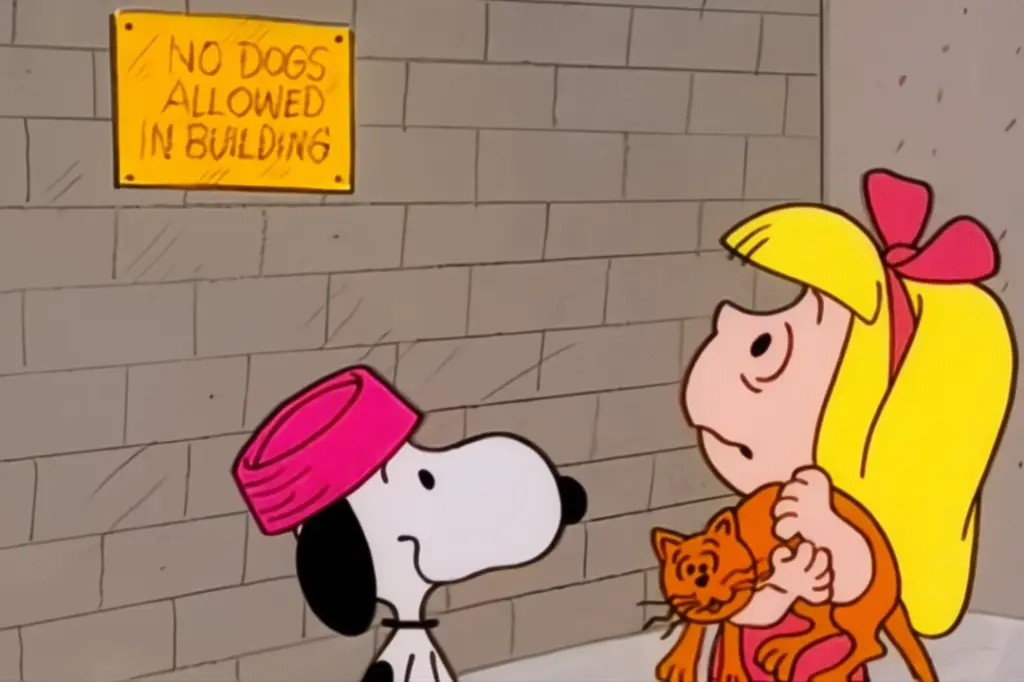
Snoopy returns to the Peanuts gang in a triumphant celebration of adoration and praise, just the way Snoopy wants it. However, as soon as the celebration ends, Snoopy hands out demand letters for the belongings he gave away earlier, threatening legal action if they refuse. His letter to Charlie Brown is particularly demeaning. The End.
Fuck you, Snoopy.
Snoopy vs. Charlie Brown
Snoopy, Come Home was the second Peanuts full-length feature after A Boy Named Charlie Brown (1969), and followed from the success of the holiday specials, such as A Charlie Brown Christmas (1965) and It’s the Great Pumpkin, Charlie Brown (1966). Snoopy was the breakout character for the franchise. However, in the specials and first movie, Snoopy was comedic relief, not the main character.
For Snoopy, Come Home, Snoopy is upgraded to the main character and becomes a raging asshole.
Snoopy is the popular kid, self-absorbed and indifferent to his impact on the people around him. The “No Dogs Allowed” gag is Snoopy having to face reality and accountability, and he does not like it. The crazed girl who kidnaps him gives Snoopy a taste of his own behavior. Snoopy is the antagonist in this movie. Everything happens because of his selfish choices. His gambit at the end, ditching Lila and returning to an adoring Peanuts gang, is simply his way of reasserting the dominance he believes he is entitled to.
Charlie Brown is the everyman: A shy, nerdy, kid with low self-esteem. He struggles to connect with everybody, especially Snoopy. Despite repeated dismissal of his feelings, Charlie Brown perseveres and remains decent, hopeful, and compassionate. Charlie Brown is the protagonist, trying to cope with the bullies around him. His exasperated expression at the end sends him right back to his subservient role as Snoopy’s slave.
Patty, Lucy, Linus and the other kids are bullies. They are cruel and indifferent to Charlie Brown’s suffering and feelings. Perhaps this is because Charlie Brown’s dog is an absolute jerk to them.
Snoopy, Come Home may be a slapstick tale of loss and reunion on the surface, but underneath is a dark and depressing story of bullying and cruelty.
Jungian Shadow
Reflecting on Snoopy, Come Home led me to explore my Jungian shadow — the repressed, darker aspects of my psyche shaped by past trauma. The movie tapped into my deep-seated rage and resentment toward bullies, stemming from my childhood experiences of being bullied. Like Charlie Brown, I too was a shy, nerdy kid. Naturally, I felt enormous empathy for the unwarranted cruelty Charlie Brown experiences at the hands of Snoopy and his “friends.”
My struggle with bullies continued well into adulthood, even in professional settings. However, as I matured, and explored my Jungian shadow with my counselor, I learned how to channel my rage into more productive endeavors.
Yet when Snoopy, Comes Home comes on TV, I am transported right back to the 1970s and the bullies berating me for being different. The nostalgia of the movie conflicts with my intense feelings of hatred, creating a meltdown. Now that I know this, I can manage it a lot better.
Schulz Psychoanalysis
One of the truly brilliant things about Peanuts is how effectively its creator, Charles M. Schulz, used the setting of childhood to explore complex adult themes such as self-image, faith, loss, and heartbreak. Moreover, Schulz helped destigmatize mental health through Lucy’s humorous psychiatric sessions. Similarly, The Bob Newhart Show, which ran from 1972-1978, helped normalize mental-health counseling.
Schulz’s willingness to tackle complex emotional topics is what gives these shows such an enduring quality. A Charlie Brown Christmas explored faith, while It’s the Great Pumpkin, Charlie Brown flipped the narrative, focusing on Linus’s belief. Snoopy, Come Home tackled a much darker topic. It showed the depressing reality that bullies rarely face consequences and people do not change. There is no character growth in this movie. At the end, Snoopy remains unkind, Charlie Brown continues to be marginalized, and Lila is left alone, again. The film presents a brutally honest depiction of bullying, pain, and loss, masked with humor and lively songs.
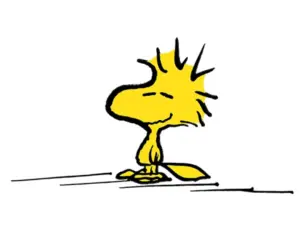
Conclusion
This analysis is a testament to how art can serve as a mirror for self-discovery and healing from trauma. Snoopy, Come Home makes me sad, but it also helped me confront and understand the pain of my past, even decades later. Each of us has a Jungian shadow that shapes who we are, and sometimes a movie or book can help us explore and accept our darker side. The rewards of such introspection are profound.
My final insight from Snoopy, Come Home is this: Be Woodstock. He goes with the flow, accepts others as they are, demands nothing, and takes life as it comes—a model of the Yin-Yang balance, even if he cannot fly straight.
Note: All Peanuts characters are the property of Peanuts Worldwide LLC

